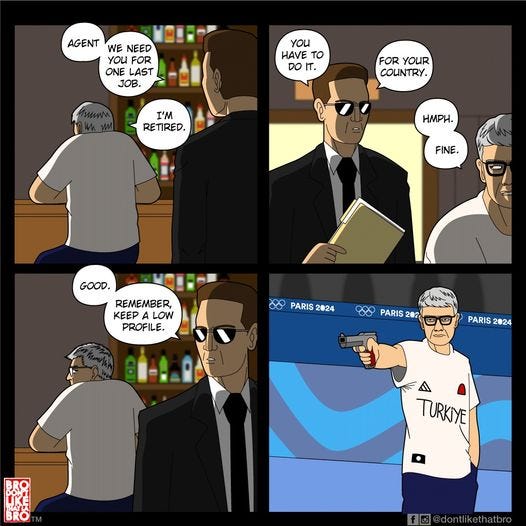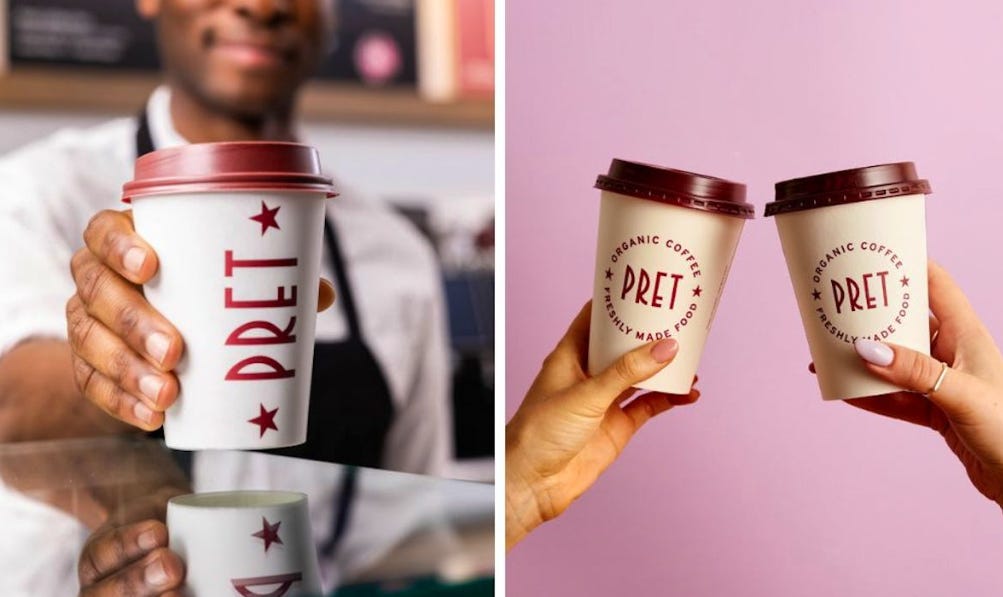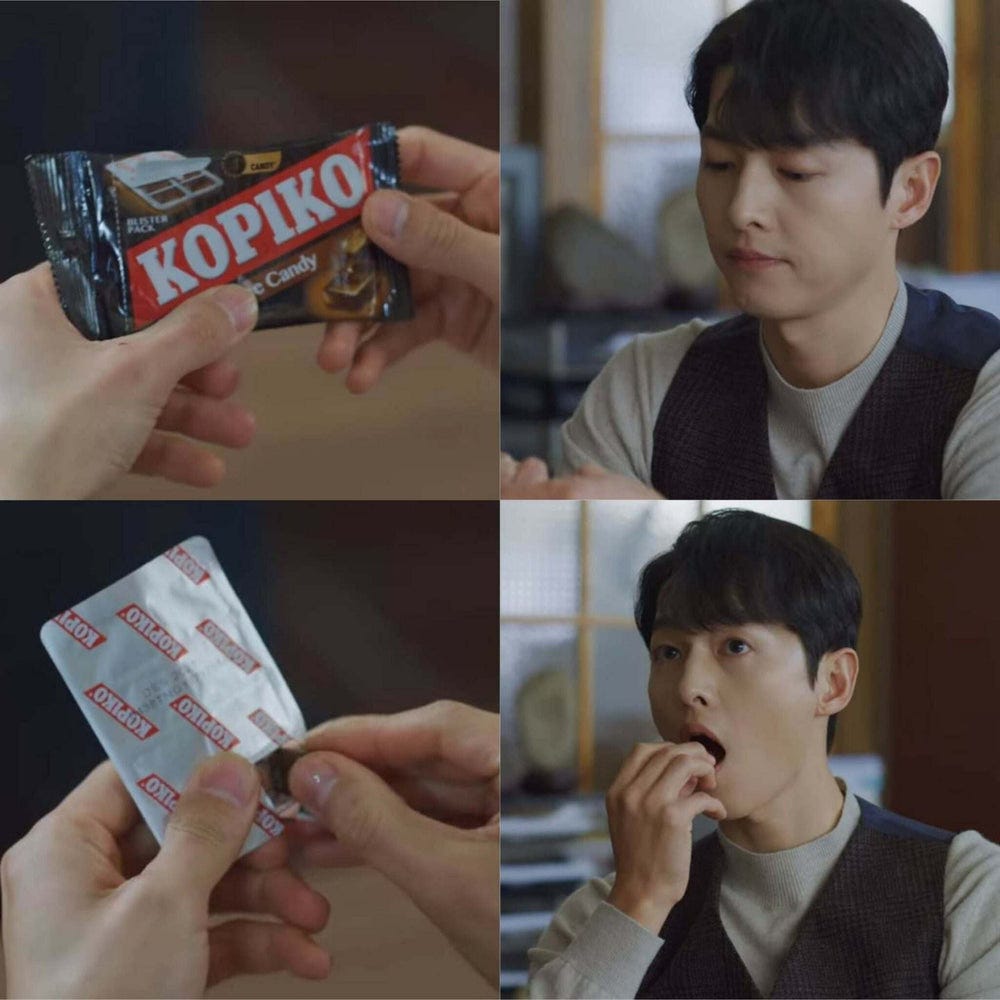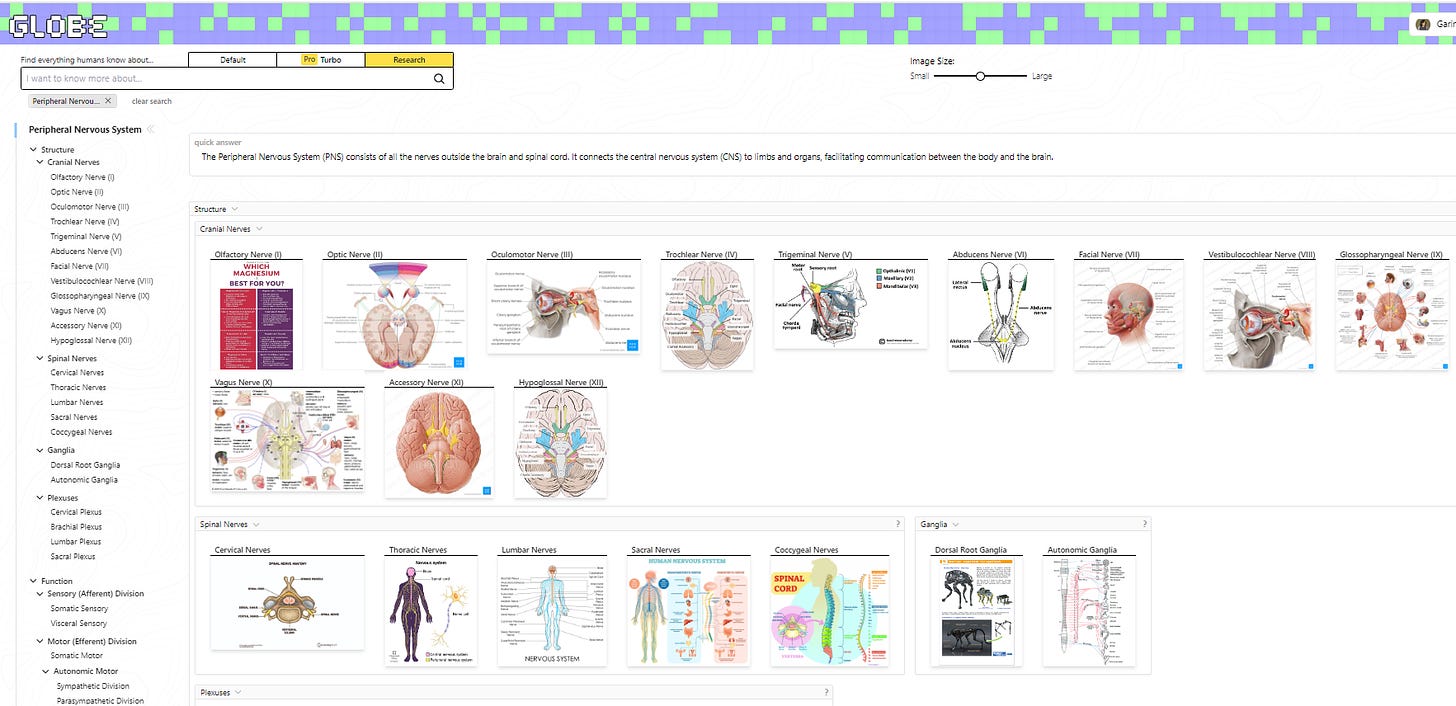Marketing Dojo #73: A Bitter Brew
Loyalty programs need a long-term view, Amazon delivers yet another hit, Bridgerton-mania and more.
👋 Hello,
Welcome to the 73rd issue of the Marketing Dojo! I know your inbox is busy, so thank you for reading today’s newsletter.
My social media feeds are overflowing with Olympic memes, especially the ones featuring the Turkish shooter Yusuf Dikec.
But even as the games continue, Google has already clinched the gold for the worst Olympic ad ever.
In their latest “gem”, a father encourages his daughter's love for sports and writing by suggesting she use AI to write a fan letter. This isn't Google's first misstep—they previously aired an ad urging us to "photoshop your memories" with equally unsettling AI.
Eeks. Whoever is feeding Google's marketing team these ideas really needs to stop!
Rant over. Here’s what we’ll cover in today's newsletter:
🔥 How to destroy loyalty one coffee cup at a time
📈 Meme-time: Amazon's Prime Day Is Going Strong
🎨 Creative excellence: The on-trend safety video
🎙️ Podcast recommendation: Understanding (and exploiting?) biases
And lots more.
If you haven't already, consider subscribing to the Marketing Dojo. I deliver a new edition every Wednesday, focusing on the marketing news that matters.
If you would like to be featured in this newsletter, fill out the form for our Just One Question section, and I'll get back to you.
With that, let's dive right in!
Pret’s Loyalty Program Overhaul Goes Wrong.
Nothing hurts more than losing a beloved perk. Just ask the loyal customers of the UK's leading cafe, Pret A Manger. Amid the Covid crisis, Pret introduced a "too good to be true" coffee subscription that drew customers back in droves.
However, recent price hikes have forced Pret to make radical changes to its loyalty program. The original subscription, which allowed customers up to five free barista-made drinks per day for £30 a month, will be replaced in September with a new scheme offering 50% off up to five drinks per day for a reduced fee of £10 per month. Additionally, the 20% discount on subscription food items will be discontinued.
The original Pret Club program became extremely popular, with over 53 million coffees brewed in 2022. Social media reactions have been overwhelmingly negative, with customers threatening to switch to competitors or, worse, make coffee at home.
Several psychological biases explain this outrage:
Endowment effect: People tend to value items they own more than similar items they don't own. Because of this, customers overvalued the original subscription, making any change feel like a significant loss.
Loss aversion: Losses are psychologically twice as impactful as equivalent gains. This bias amplified the negative feelings associated with losing the original benefits, overshadowing any potential advantages of the new offer.
Pulling back on such a wildly popular loyalty program is bound to hurt Pret A-Manger in the short term. It serves as a lesson for marketers: consider the long-term sustainability of any loyalty program. While they might drive foot traffic, unsustainable programs can severely impact profitability and are notoriously challenging to reverse.
Podcast Recommendations: Cognitive Biases That Shape Consumer Behavior
Speaking of biases and their role in effective marketing, I have a podcast recommendation.
I love listening to the Nudge podcast, and its latest episode, "7 Cognitive Biases That Might Ruin Your Life," offers some critical insights for marketers.
Here are three biases I found especially interesting:
Serial Position Effect: This cognitive bias makes people remember the first and last items in a series better than those in the middle. It's divided into the primacy effect (better recall of the first items) and the recency effect (better recall of the last items).
During product demonstrations or pitches, presenting the most important features first and last ensures the audience remembers them.
Messenger Bias: This bias involves the tendency to be influenced by the characteristics of the person delivering the message rather than the message itself.
Brands collaborate with influencers who resonate with their target audience. The influencer's relatability and trustworthiness can significantly impact consumer behaviour.
Mere Exposure Effect: This psychological phenomenon suggests that people develop a preference for things simply because they are familiar with them. Repeated exposure to a stimulus increases our liking for it, even if we don't consciously recognize the exposure.
Frequent product appearances in TV shows or movies can leverage this effect, subtly increasing consumer preference. For example, the Indonesian coffee-candy brand Kopiko made a splash thanks to its product placements in K-dramas.
Thinking is to humans as swimming is to cats; they can do it, but they'd prefer not to. - Daniel Kahneman .
The human mind develops shortcuts to make decisions. Understanding these heuristics can be a game-changer for marketers. Listen to the podcast to learn about all seven biases.
Meme-time: Sky’s The Limit For Amazon Prime.
The sky is the limit for Amazon's Prime Day Sales - increased competition and poor customer sentiment notwithstanding.
This year, during the 48-hour Prime Day sales event, Amazon garnered $14Bn in sales. That's equal to the annual revenue of Shopify, Pinterest, Snap, and Zoom combined!
Here's a Mr Beast meme to depict the pile of cash Amazon generated every Prime Day event.
Creative Excellence: A Royally Creative Safety Video.
I confess I barely pay attention to airline safety videos.
But if I were flying British Airways starting August 1, I would be eagerly awaiting the safety instructions.
Why? Because they are 𝐁𝐫𝐢𝐝𝐠𝐞𝐫𝐭𝐨𝐧-𝐜𝐨𝐝𝐞𝐝!
Netflix recently released the third season of Bridgerton, and the mania for all things British Regency era is at its peak.
British Airways' new safety video, directed by the creator of the popular series, is a masterstroke in capturing attention and building positive brand associations.
This creative approach elevates the mundane and brilliantly taps into the current cultural zeitgeist.
Who knew safety instructions could be stylish and engaging?
Short Stuff:
AI-Search engine, Perplexity, to introduce advertisements (New tech, old monetization models).
Microsoft Bing is adding AI-powered summaries to search (Hope it has better luck than Google).
Text-to-video generator Runway illegally scraped thousands of YouTube videos to train its model (The road to Gen AI products is murky).
Meta’s Threads has 200Mn active users (slow, steady, but boring).
That’s a wrap on this week. Thank you for your time and attention. If you liked this week’s newsletter or found something interesting, please give me a like ❤️ or drop a comment🗨️. Your support helps drive the newsletter's discoverability.
Once again, thank you for your time. See you in your inbox next Wednesday.
Regards,
It’s getting easier than ever to learn something new. Last week, I was struggling to understand a critical system in automotive.
The first presentation I attended was so engineering-heavy that I barely grasped a thing. YouTube videos helped simplify the concepts, but they didn't quite answer my follow-up questions.
Then I discovered Globe Explore, and it blew my mind! In just a few seconds, it produces the best reports on anything I want to learn. It even has a mode where I can keep asking follow-up questions.
If you're curious and looking to learn something new, give Globe Explore a try. You won’t regret it!







